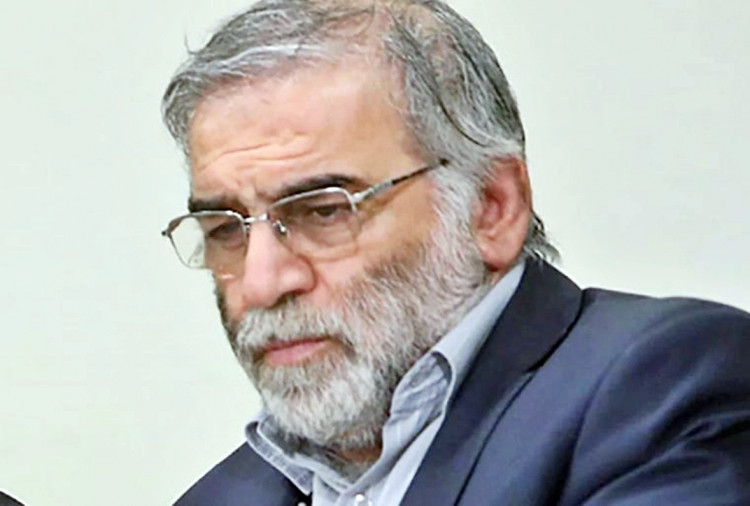Iranian scientist Mohsen Fakhrizadeh, the man tasked with developing an atomic bomb for Iran, is the fifth Iranian nuclear scientist assassinated since 2010 in a spate of murders blamed on Israel and Iranian mercenaries working for them.
At the time of his murder Friday in Absard, a city 70 km to the east of Tehran, Fakhrizadeh was head of the research center of new technology for the Iranian Revolutionary Guard Corps (IRGC). This research center is the Organization of Defensive Innovation and Research, which specializes in developing nuclear weapons.
Fakhrizadeh, 63, was a leading figure in Iran's nuclear program for years and was once in charge of Iran's nuclear program codenamed "Project 111."
Fakhrizadeh was killed Friday in a sophisticated ambush carried out by at least five men. The attackers first detonated a truck carrying explosives hidden beneath a load of wood as Fakhrizadeh's car came near. A bomb demolished a second vehicle in Fakhrizadeh's convoy.
Shooters then sprayed Fakrizadeh's car with bullets, mortally wounding Fakrizadeh. According to Iranian media, his bodyguards traded fire with the gunmen and killed at least three of them.
Iran's Foreign Ministry confirmed Fakrizadeh succumbed to his wounds in a hospital in what is called a "martyr's death." Authorities in Absard also confirmed the death of several of the attackers.
Fakhrizadeh's murder is the latest in a spate of killings targeting Iranian nuclear scientists being carried out by Israel. Israeli prime minister Benjamin Netanyahu once called out Fakhrizadeh's name in a news conference, saying: "Remember that name."
Fakhrizadeh is the fifth Iranian nuclear scientist known to have been murdered by Israel since 2010. Of this number, four were murdered by Israeli operatives from 2010 to 2012: Masoud Alimohammadi, Majid Shahriari, Darioush Rezaeinejad, and Mostafa Ahmadi Roshan. Another scientist, Fereydoon Abbasim, was wounded in an attempted murder.
Shahriari and Roshan were blown-up by magnetic bombs attached to their cars. Rezaeinejad was shot dead while a motorcycle-bomb explosion killed Alimohammadi.
Fakhrizadeh's assassination is the second high-profile killing of a top Iranian official after IRGC Quds Force chief General Qassem Soleimani was murdered in Baghdad in a U.S. airstrike authorized by President Donald Trump last January.
Major General Mohammad Bagheri, Chief of Staff for the Armed Forces of the Islamic Republic of Iran, warned of "severe revenge" against those behind the assassination of Fakhrizadeh.
Hossein Dehghan, former Iranian minister of defense and now an advisor to Supreme Leader Ayatollah Ali Khamenei, accused Israel of killing Fakhrizadeh to provoke a war.
"In the last days of the political life of their ... ally [U.S. President Donald Trump], the Zionists (Israel) seek to intensify pressure on Iran and create a full-blown war," tweeted Dehghan.
In Europe;'s first reaction to Fakhrizadeh's murder, Carl Bildt, co-chair of the European Council on Foreign Relations, said the assassination might be related to president-elect Joe Biden's promise to return to the Iran nuclear deal.
"It's not unlikely that this targeted killing was part of efforts to prevent the Biden administration from reviving diplomacy with Iran and going back to the nuclear agreement," he tweeted.






